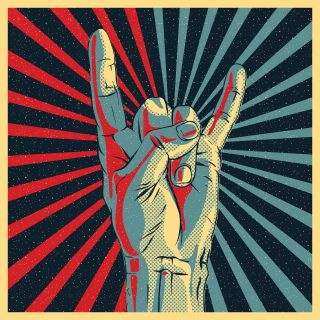Identity
You Want World Peace? Look to Heavy Metal.
It just might do you, and the world, some good.
Posted June 5, 2014

Primarily, I blog about violence and terrorism related topics. But in addition to this line of research, I have actually studied music, influence and identity quite extensively. In fact, I have used music as the basis for an HIV prevention intervention in a program of research supported by NIH, and published in Health Psychology. I’ve written about music in the context of recruiting and radicalization toward terrorism and also about Wade Michael Page who was heavily involved in the white supremacist music scene prior to his attack on the Sikh Temple in Milwaukee. I think about music a lot; I love to listen and play music — and often (half) joke that I am only an academic and researcher because the whole "rock star" career didn’t really pan out. And this morning, like most mornings for that matter, I am listening to Metal.
Most often discussions of Metal as a broad musical genre present it as a problem to be addressed and solved — What is it about Metal music that causes increased aggression? To be fair, some data supports this relationship. However, previous research in my lab conducted by a former student found that individual preference for the music mattered in a way that made it more about frustration than about effects of the music itself. Of course these are serious and legitimate concerns about the effects of violent thematic content — where the fan and the scientist in me have to clash a bit (full disclosure — the fan usually wins).
Surely we have seen that Metal makes a good scapegoat. After just about any school shooting, we of course want to know what video games they were playing, what movies they were watching, and what music they were listening to, as though this information — in itself — would provide some definitive answers to explain extremely aberrant and destructive behaviors. But as in anything, the answers require us to dig deeper and to look at surrounding details. In the case of metal, one of the things that artists and fans alike understand is that it gives voice, it gives identification and maybe in some cases that isn’t enough.
But today, what if we think about metal as a possible solution?
In my experience, Metal provides a sense of community, fraternity and social bonds that transcend other aspects of social identity. The key is that no matter where you are, in most circumstances where music preferences come up — where people like metal — or especially particular bands or artists within the genre, there is an almost seemingly instant bond that emerges. It becomes the basis for subsequent and sometimes deeper discussions, facilitating the formation of relationships built on mutual interests and aspects of a shared social identity.
While I know that Metal is not the most popular musical genre among the vast majority of the population, it certainly can offer us some lessons and examples.
For instance: I’m guessing that Conservative radio and TV personality Dana Loesch and I may not agree on a whole lot of political issues. But I would bet we agree on metal. And that is exactly the kind of point I want to make here. Even when there is contestation of ideas and disagreement, there is the potential for Metal music to build a bridge.
One of my favorite books in the last decade is Mark LeVine’s “Heavy Metal Islam." In it, he chronicles the unique ability for music and especially heavy metal to give voice and allow for self-expression in places where that isn’t always the easiest thing to come by because of varying degrees of repression.
Heavy metal provides a place and space where everyone can fit in. It is welcoming. Sure, on the surface it might not seem that way with the deliberately menacing appearances that many Metal artists take on. But take my word for it — I’ve shown up at countless concerts over the years. Sometimes looking more like a college professor on his way home from work (because I am one) than a metalhead. The key takeaway is this: It doesn’t matter. Because by being there, you are IN.
In closing, don’t be afraid to throw up the horns with pride and reckless abandon. It just might do you, and the world, some good.


